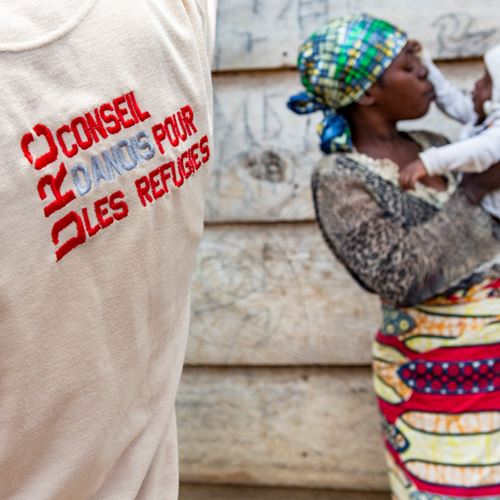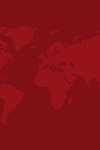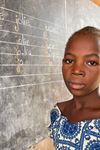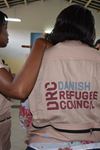
Democratic Republic of Congo
DRC in the Democratic Republic of Congo (DR Congo) provides multi-sectoral assistance to refugees, internally displaced persons and vulnerable host populations affected by conflict. The aim is to reduce immediate protection risks and household vulnerabilities through a rapid and relevant humanitarian response that strengthens people’s protective environment. DRC’s priority is to address the most urgent needs of communities through implementing protection activities, providing safe water, hygiene and sanitation, safe shelter (emergency and transitional), food security and improved livelihoods.

Displacement trends
Source: | DRC Foresight
Displacement Trends
Definitions
EDPs: Refugees under UNHCR’s mandate
IDPs: Internally displaced persons
Asylum seekers: People whose claims for refugee status have not yet been determined
Stateless: People not considered as nationals by any State
HST: People living in Host Communities
OIP: Others in need of International Protection
OOC: Others of Concern
Forecast
DRC forecasts are based on a machine learning tool that has been developed to predict forced displacement (IDPs, refugees and asylum seekers) at the national level 1-3 years into the future.
Why we are there
In this context of a deteriorating humanitarian situation, DRC is strengthening its strategic positioning in order to support multi-sectoral interventions and respond better to the needs of displaced populations, children made vulnerable by the conflicts, people at risk of, and survivors of, Gender Based Violence (GBV), as well as people with disabilities.
Due to the destruction of community infrastructure, people returning to their homes face difficulty accessing basic care structures like health centers and schools and lack job opportunities to ensure their survival.
The care of children who have left armed groups remains urgent as well as the reintegration of vulnerable children into school.
The population faces low water, hygiene and sanitation (WASH) coverage and deplorable conditions in host families.
Shelter needs are particularly critical in these areas, especially transitional/local construction shelters for displaced households in spontaneous sites and in host families.
There are protection gaps to be covered in terms of identifying victims of human rights violations through protection monitoring, referring survivors of these violations to care structures, identifying the urgent needs of vulnerable people in displacement situations through proper profiling, strengthening the social fabric through activities that bring communities together, and fighting impunity through legal support for victims to ensure that their rights are respected and enjoyed.
What we do
DRC provides a holistic response based on an analysis of the humanitarian context, vulnerabilities and capacities.
In terms of shelter, DRC targets displaced people, the affected host community and returnees, in strict compliance with the "do no harm" principle. To this end, DRC assists communities in the construction of emergency shelters (for IDPs) and transitional shelters (in areas of return).
DRC aims to strengthen access to water, hygiene and sanitation services for displaced people in sites, host families/communities and neighboring communities by building/rehabilitating water points, sanitation and hygiene infrastructures (latrines and showers) accompanied by hygiene promotion.
The Education response aims to ensure access (to) and quality of education for displaced children and host households in a safe and protective environment. The minimum package of activities for the immediate and long-term response focuses on training/sensitizing teachers and communities, setting up temporary learning spaces and emergency latrines, distributing school supplies to pupils and teachers as well as educational and recreational kits to schools, and distributing hygiene and sanitation kits.
DRC works on the prevention (of) and response to gender-based violence (GBV) and child protection, with an emphasis on building the capacity of community structures with a view to sustainability. Psychosocial support is offered to survivors, as well as individual protection assistance (API), case management and referral.
A new approach has been introduced as part of the implementation of GBV prevention activities: the SASA! Together approach developed by Raising Voices. DRC also keeps a specific focus on access to safe spaces for children and improving the activities and services offered within child-friendly spaces.
The food security and livelihoods response aim to mitigate the immediate effects of food insecurity within vulnerable households through cash assistance, agricultural recovery activities and advocacy for access to arable land. DRC ensures the economic recovery of households through income-generating activities, Village Savings and Loans Associations (VSLAs) and Cash for Work (CFW) schemes. The new Graduation approach introduced is a pilot phase to enable households to gradually emerge from extreme poverty over a two-year period through 4 pillars: social protection, financial inclusion, social empowerment and livelihood promotion.
Working in collaboration with


Directorate-General for European Civil Protection and Humanitarian Aid Operations

The Swedish International Development Cooperation Agency
Contact

James
Curtis
Executive Director East Africa & Great Lakes
Michel
Paradis
Country Director


